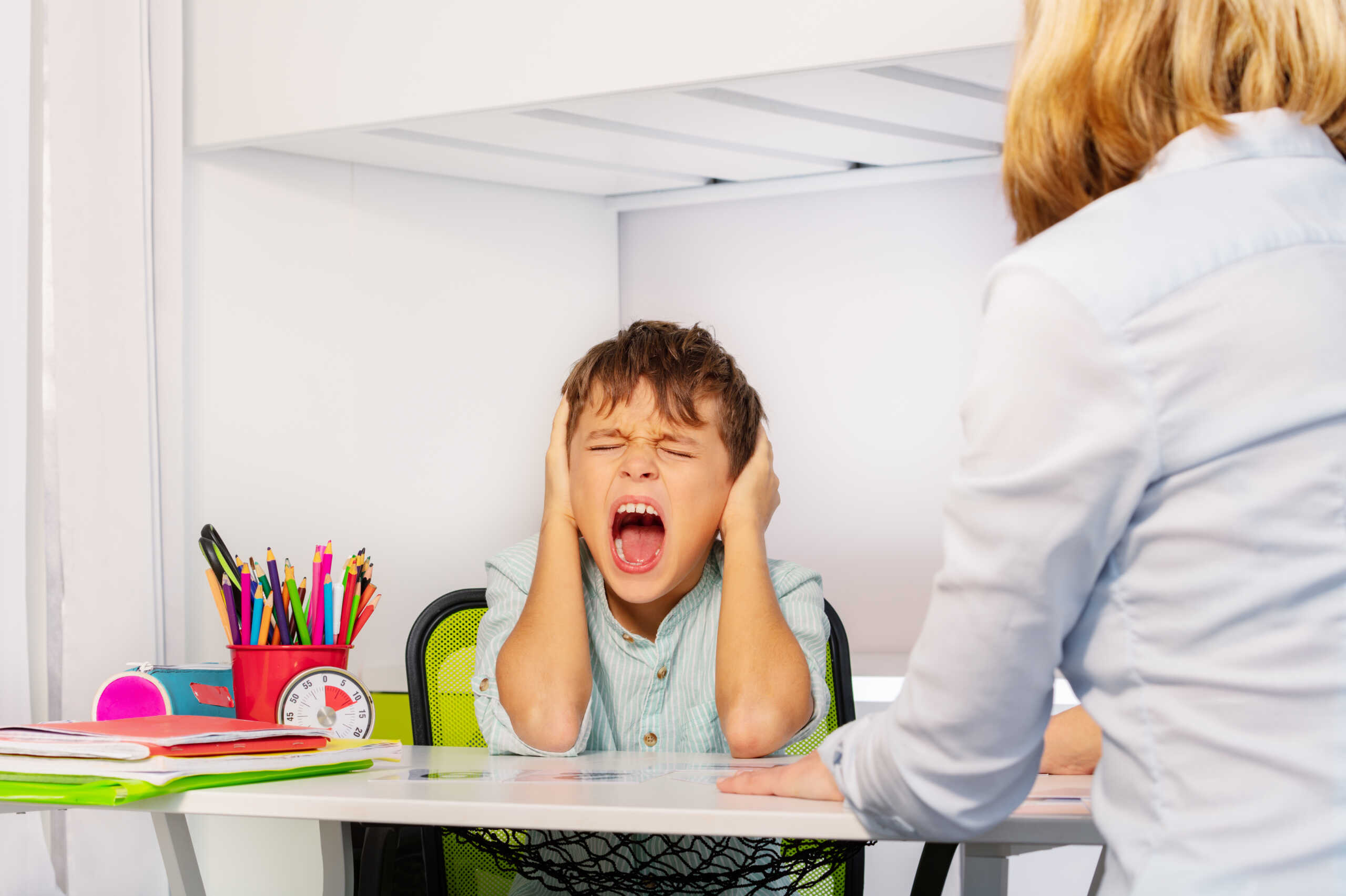Blog
Does My Child Need a Fort Myers Speech Therapist if His Speech is Hard to Understand?
When your child is hard to understand, it can be stressful for you, your family, friends, educators – and perhaps most especially, your child. Of course, nobody enters this world speaking perfectly, and each child has their own timeline for proper pronunciation. However, it’s also important not to wait too long if you notice your child is more difficult to understand than his or her peers. The sooner a Fort Myers speech therapist can intervene, the faster your child can catch up to where they need to be. That can be critical to ensuring they don’t fall too behind socially and academically. Speaking skills mastered before pre-K and kindergarten can significantly impact the ease with which your child will be able to read and write.
Although every child develops at their own rate, knowing what key milestones to watch for is a good idea. In general, as noted in a recent Parents.com article, you should understand:
- At least 50 percent of what your child says by age 2.
- At least 75 percent of what your child says by age 3.
- About 100 percent of what your child says by age 4, even if all the sounds aren’t perfect.
By the time your child is about 6 or 7, he or she should produce all sounds correctly most of the time. If you can’t, it is well past time to reach out to a Fort Myers speech therapist. Ideally, we like to start treatment of children with speech and language delays and disorders as soon as possible – the earlier the better. At FOCUS, we are big proponents of “early intervention,” which starts between ages 2 and 5.
Fort Myers Occupational Therapists: Helping Kids With Time Management
Why did the man sit on the clock? …. Because he wanted to be on time!
Compelling a child to complete tasks in a timely manner is a daily struggle for so many parents. This is especially true when your child has developmental delays and disabilities. As Fort Myers occupational therapists, we recognize that time management is not only an executive function skill that our brains will keep working on well into our 20s (!), but it’s also an abstract concept that’s tough for a lot of kids to grasp – to their parents dismay!
For the most part, schoolchildren aren’t taught time concepts until 2nd grade. Yet we often expect kids their age and even younger to “get it” when it comes to how time works and how to manage the time they have. “You have 8 minutes before we leave for school,” or, “It’s 20 minutes until bedtime.” And then we’re frustrated when they aren’t ready or have a meltdown at the transition. After all, you DID give them a heads-up!
The good news is, there are several strategies our occupational therapists can offer to help your child both grasp the concept of time and manage it better.
That Tricky “TH” Sound – When Should You Be Concerned? Pediatric Speech Therapists Weigh In.
Does your child say “brudder” for “brother”? “Dat” for “that”? “Fing” for “thing”? As our Fort Myers pediatric speech therapists can explain, the ‘th’ sound is one that develops later for a lot of kids. Some master it sooner, often when they start school and are constantly interacting with older kids. Others continue making this error. Most child development experts agree this is a sound that should usually be developed by age 7 or 8, though it’s certainly something you can begin working on earlier.
Of course, all children develop at their own pace, and a singular issue doesn’t necessarily mean your child is going to need speech therapy, particularly if your child is younger than 7 and your only concern is the “th” sound. Still, most kids develop their speech sounds in the same general order, beginning in the first year of life. (The American Speech-Language Hearing Association has a development chart you can use for reference.) The key is if you notice a delay, you don’t want to wait too long in addressing it.
An assessment from a licensed child speech therapist can help you determine if it’s something your child will likely grow out of or whether they need some additional help. Waitlists for child speech-language therapy services in Southwest Florida can be lengthy, so it’s best to inquire sooner than later if you have a question.
- Categorized: Speech Therapy
- Tagged: pediatric speech therapy, speech therapy, speech-language pathologist, th sound
Study: ADOS Testing Measures Autism Risk Equally Well in Boys and Girls
ADOS testing, also known as the Autism Diagnostic Observation Schedule, was found in a recent, large study to measure severity of autism traits equally well in both girls and boys. This is good news because research has shown doctors may misdiagnose or overlook autism in girls, because it can sometimes look a little different than it does in boys. Boys are four times more likely to have a diagnosis than girls.
FOCUS offers ADOS testing in Fort Myers at our pediatric therapy clinic. Early diagnosis is important for both girls and boys to be able to access early intervention support and therapy, so it’s important that the testing effectively recognizes the symptoms in all kids. The U.S. Centers for Disease Control and Prevention estimates about 1 in 59 kids have an autism diagnosis.
As our Florida ABA therapy team can explain, autism spectrum disorder (ASD) is a developmental condition impacting one’s ability to communicate and socialize with others. However, it’s necessary to recognize that symptoms of autism can very significantly from person-to-person. (Hence the phrase, “If you’ve met one person with autism… you’ve met one person with autism.) Still, girls may not always fit the “traditional” understanding of a person who has autism. In some cases, they may also be better at hiding it.
4 Things to Look for in a Florida Speech Therapist for Kids
At FOCUS, we’re familiar with the process of searching for a Florida speech therapist for kids. When we’re looking to hire speech therapists, there are some key things that we look for – and it goes beyond the right education, certification or qualifications. All those things are important, but they won’t necessarily dictate whether a person is going to work well with kids.
Approximately 5 percent of kids ages 3-17 have a speech-sound disorder that lasts more than a year, often requiring some type of intervention. Sometimes, the cause is due to something like autism or down syndrome or childhood apraxia of speech. But sometimes, it’s for something like a stutter or just a general delay in speech-language skills. For many of the kids who receive speech-language therapy, you’d never be able to tell later in life. This is especially true the younger they are when they start. That’s our goal: To get kids to catch up to their peers and be able to communicate, socialize and function as normally as possible. But in order for children to reach their maximum potential, they need to be paired with therapists who are going to be effective!
Here, we’re offering some insight into the qualities we prize in our speech therapists (and therapists of other disciplines, for that matter). We hope this helps parents in their search to find the Florida speech therapist who will be right for your child.
- Categorized: Speech Therapy
- Tagged: Florida online speech therapy, Florida speech therapist, Florida speech therapist for kids, Florida speech therapy at home, Fort Myers speech therapist, in-home Florida speech therapy, kids speech therapist Fort Myers, pediatric speech therapist, searching for speech therapist, speech teletherapy Florida, speech therapist, speech therapist hiring
Florida Speech Therapy at Home With Virtual Therapy
Beyond the current need for social distancing, there are many reasons parents may be looking for pediatric therapy options that would allow their kids to have Florida speech therapy at home. There’s the convenience of it, particularly if you have to work or have other kids and commitments. Travel can be especially difficult too if you live in a more remote area.
Whatever the incentive, FOCUS Therapy in Fort Myers offers the next best thing: Teletherapy. Also known as virtual therapy, it’s a service we’ve been offering since even before the pandemic, becoming a regional leader in the field. We now extend it not just to those in Southwest Florida but to kids across the whole State of Florida who may be looking for speech therapy at home. Our reason is simple: It works.
Although many are initially skeptical of speech teletherapy, research and our own anecdotal evidence have proven it’s actually very effective for many kids with a range of conditions. And, it can be carried out in the comfort of your own home with a laptop and internet connection.
Finding the Function of Behavior: ABA Therapy Insight
In the field of behavior science, we commonly use the phrase “function of behavior.” As behavior analysts at the Fort Myers ABA therapy team at FOCUS, figuring out the “function” of a child’s behavior is hands-down one of the most mission critical parts of the job.
As parents or caretakers, it will be so helpful for you and your child too if you’re able to determine why a behavior occurs. When we don’t know what truly causes a behavior and respond reactively, we may be unintentionally reinforcing that behavior. Why is my child facedown on the floor screaming when I told him we were eating tacos tonight? Why is he nonstop kicking the back of his sister’s car seat even though I’ve begged, cajoled and yelled at him to stop?
All behavior has a reason. A function. If you’re looking for a different outcome or response, it’s imperative to find out why it’s happening in the first place. And understand that, for example, if the answer is attention (a common incentive), yelling or having an otherwise big response to it may be having the opposite effect.
- Categorized: Behavior Therapy
- Tagged: ABA therapy, behavior function, behavior science, behavior therapy, Fort Myers ABA Therapy
My Child Has a Lisp. Does She Need Speech Therapy?
Lisps are practically universal among small children who are learning to talk. In fact, they can be pretty darn cute. But when a lisp persists beyond a certain age, it’s time to consider whether speech therapy intervention is necessary.
Lisps usually last until about 4 years and 6 months, when they resolve on their own. Pay attention to your child’s peers and see whether your child’s speech stands out in this way. If your child is still talking with a lisp after age 4.5, it’s probably time to make an appointment for a speech therapy consultation. If the speech therapist recommends therapy, it’s best to start right away. The longer you wait, the harder the habit may be to fix.
It’s also a good idea to seek speech therapy services from a private clinic as opposed to relying on public schools to take care of it. It’s not that there aren’t good speech-language pathologists in schools (in fact, many are excellent). The issue is that many school therapists may not be able to treat a child with a lisp until age 7 or 8. Beyond that, if the lisp doesn’t directly impact the child’s education, school district speech therapists may not be able to treat them at all.
- Categorized: Speech Therapy
- Tagged: childhood lisps, lisps, speech therapist, speech therapy
Benefits of Clinic-Based ABA Therapy vs. In-Home Treatment
Applied Behavior Analysis (ABA therapy) is considered the most effective, early-intervention treatment for kids on the autism spectrum. It can take place in several settings: Clinic, home or some combination of the two. At FOCUS, we have chosen the clinic-based model for a number of reasons that benefit our patients.
One of the primary reasons is that we believe children benefit from being in a multi-disciplinary setting. It’s not just that it’s convenient for parents of children who need multiple therapies to have a single, physical location for all of them. (Families in Southwest Florida may find it very difficult to arrange all of the therapies their child needs in a home-based setting.) It’s the fact that in a clinic-based setting, supervisors are more available to provide additional direct observation and guidance compared to in-home services.
This point was underscored in a recent study published by the National Institute of Health. In that analysis, researchers controlled for individual differences by comparing and contrasting at-home and clinic-based ABA therapy treatment for the same kids. What they found was that kids demonstrated far higher rates of learning during treatment provided in-clinic compared to in the patient’s home. In fact, they mastered 100 percent more skills per hour while receiving in-clinic treatment compared to home-based treatment.
FOCUS Offers ABA Therapy at Our Fort Myers Clinic
Our clinic-based ABA therapy at FOCUS is designed to optimize your child’s growth in numerous areas of development, including:
- Social interactions.
- Play skills.
- Adaptive skills.
- Communication.
- Categorized: ABA Therapy, Behavior Therapy
- Tagged: ABA therapy, Fort Myers ABA Therapy
Cooking Up Some Communication! Tips From FOCUS Speech Therapists on Meal Prep as a Language Booster
Building kids’ speech and language skills isn’t just some magic we cook up in the clinic – it’s something you can do in your very own kitchen too! As our FOCUS speech therapists can explain, the more you can help your child try to practice their skills everywhere but the clinic, the better off they’ll be for it. What we’re aiming for here is something called carryover, and it’s something the American Speech Language and Hearing Association underscores can help those lessons “stick.”
This is especially important if they’re schooling, extracurricular activities and social events have been significantly curtailed during the pandemic. They’re going to need all the extra help they can get!
Our speech therapists recognize that cooking is a great activity because it not only helps them with lots of speech and language concepts (up, down, over, in, stir), there are math and science components, it encourages creativity, responsibility, teamwork and independence. Cooking can be a very naturally social activity, and it’s one that can help you make wonderful memories. Plus, it can be easily tailored to the child’s age and skill level with just a little planning. Start out with it just being you and your child, and once they get more comfortable with it, you can work your way up to have siblings and others involved – make a play date of it!
Social Skills of the Sous Chefs
The sous chef is the second-in-command in the kitchen. Anytime you’re working with high heat or open flames or sharp tools, it’s important that kids understand who is in charge and how important it is to listen carefully and follow directions.










